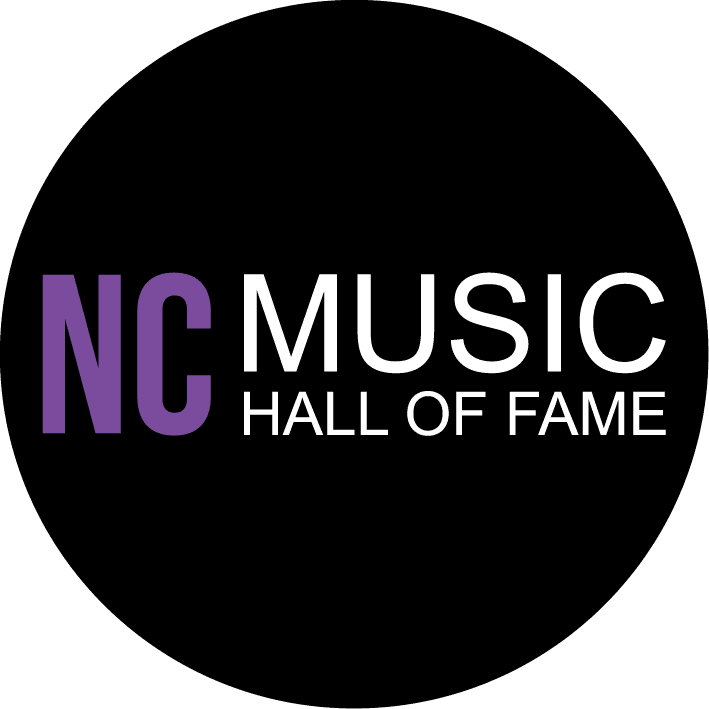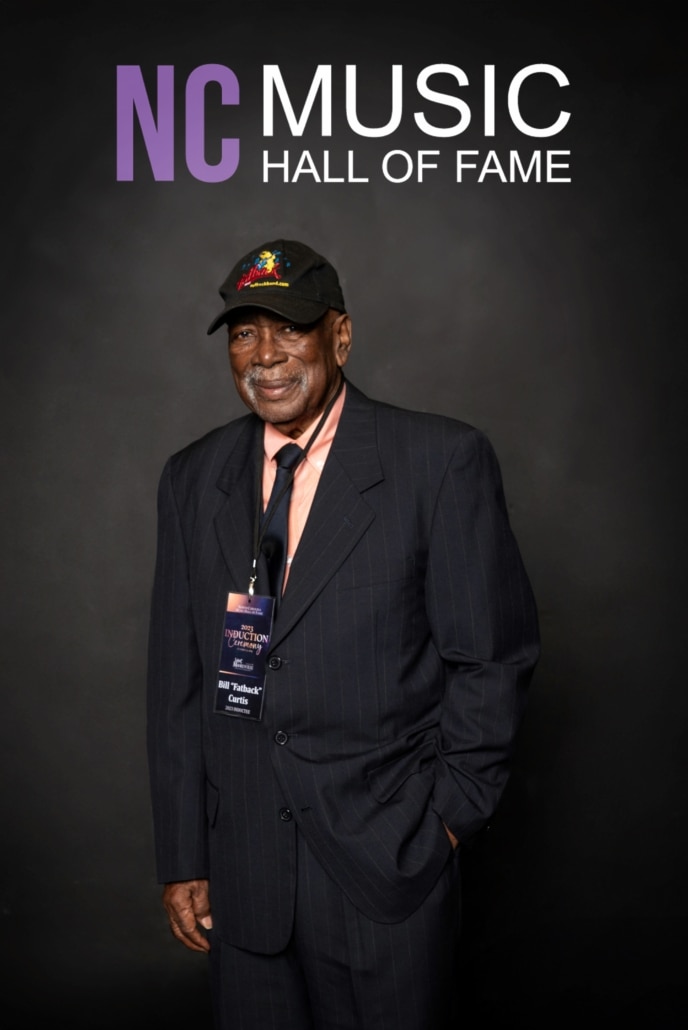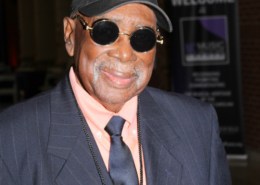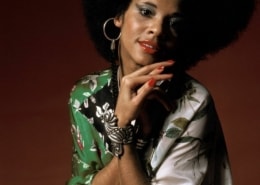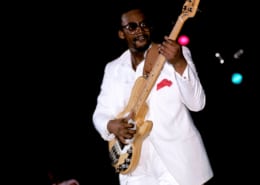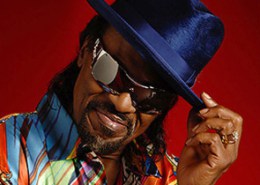Bill “Fatback” Curtis
Biography
(Photo Credit: WrightDesign75 Photography- Edward Wright)
Bill Curtis was born in Fayetteville, North Carolina on August 5, 1932. Curtis studied the keyboard from ages 7 to 10 before switching to drums. Curtis drummed for bands while attending E.E. Smith High, from which he graduated in 1950. He joined the Army in 1950 where he performed as a drummer with the 33rd Army Band and 7th Army Special Services Group until 1954. He was discharged in 1955. He attended the Mannes College of Music in New York for three years before attending New York University School of Music. He began playing with artists like Bill Doggett, Paul Williams, King Curtis, Ron Anderson, Clyde McPhatter, and the Apollo Theater House Band. He toured throughout the country eventually earning the nickname “Fatback” from bandmate Eric Gale who liked the funky drumbeat Curtis had created that he called “Greasy.” Once Curtis got his own band, he named it the Fatback Band in 1971.
The “Fatback” concept for the band emerged from Curtis’ quest to invent a new groove by merging the fatback jazz beat of New Orleans with vivid West Indie and Caribbean rhythms, a sound that became the basis for the disco era. The group started with Curtis, guitarist Johnny King, bassist Johnny Flippin, trumpet player George Williams, saxophonist Earl Shelton, conga player Wayne Woolford. Curtis added instrumentalists George Adams, Fred Demerey, Gerry Thomas, and George Victory.
They played the New York circuit, cabarets, and clubs. He started producing in 1972 with bandmate and keyboardist Gerry Thomas. The Fatback label was also started at that time with four artists on the label. In 1973, Curtis produced the first Fatback Band album, “Let’s Do it Again” on Perception Records. They hit the charts with the single “Street Dance.” They released “People Music” in 1973, and “Feel My Soul” in 1974 before signing to Event Records. Incorporating a more dance-oriented aspect to their sound, the group achieved success with the next few albums including “Keep on Steppin,” and “Raising Hell.” Chart success arrived in 1976 when “(Let’s Do The) Spanish Hustle” was released and climbed up the pop charts. The group relocated to Spring Records releasing songs like “Party Time,” “The Booty,” and “Double Dutch.” In 1977, the group was simply known as Fatback. Fatback has been credited with recording the first hip hop song in 1979, a tune called “King Tim III (Personality Jock).”
The group’s success continued in the eighties including hits like “Back Strokin’” and their biggest hit “I Found Lovin.”
Curtis and Thomas produced many of Fatback’s records and produced two albums with Wild Sugar. Their hit, “Bring It Here” was co-written by Curtis and Thomas and was sampled in the Beastie Boys hit, “Brass Monkey.”
The group took a break between 1993 and 2001. In 1993, Curtis moved back to Fayetteville. In 2004, re-activated the Fatback label and the band released “The Second Generation.” The band has released more than 35 albums of original material infused with everything from jazz, funk, R&B, disco, rap, and soul.
They continue to tour and make music. Bill Curtis’ leadership and production of Fatback has helped pave the way for other bands and keep the music alive. He has released 50 or so albums over the course of his career. Curtis still lives in Fayetteville creating music under Bill Curtis and Friends to transcend artistic boundaries to expand his discography and legacy.
Video Biography
Music Sample
Interview
